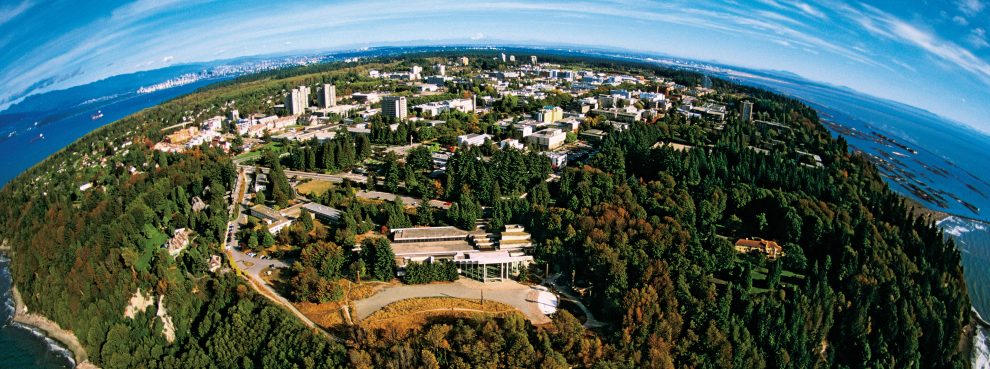Session 1: 3.45pm – 4.30pm
Session 2: 4.40pm -5.25pm
Session 3: 5.35pm – 6.20pm
Session 1
On Science Communication – 10 Things You Can Consider To Vanquish The Anti-Science Horcrux (3:45 – 4:30 pm, Room 1416) – Dr. David Ng
Whether it’s for science, evidence based policy, civil liberties, or basic human dignity, knowledge of the information ecosystem is more important than ever. More so, if you want to turn your passion into effective communication, teaching, and/or advocacy. This talk, by science literacy academic, David Ng will go over a number of elements to consider, and on the way highlight some of the remarkable surprises of how culture inhabits and reacts to the world arena of facts and non-facts.
Back to top
Ecosystem Approach to Human Health – A Healthy and Sustainable Food Systems Perspective on GMOs & Technological Innovation (3:45 – 4:30 pm, Room 1510) – Dr. Jerry Spiegel
In the spirit of the conference’s theme and its focus on “interactions between academia, media, and politics [that] shape and influence life science research”, this session will examine how the issues involved in introducing a new technology cannot be reduced to merely consider narrow exposures, but must i) consider broader system effects; and ii) ensure that open and transparent processes allow all those affected to be meaningfully involved.
The case of introducing GMOs will be considered to contextualize what must be considered if research into the microbiome is to reach its full potential. This implies that toxicity studies are a necessary but insufficient element in the processes that must be followed if the complexity of what is needed for a healthy and sustainable global food system is to be addressed. The issues will include an introduction of key issues to consider, small group interactions and a general discussion.
Back to top
The Unkillable Poet – The Xenotext and Living Poetry (3:45 – 4:30 pm, LSC3) – Dr. Christian Bök
The Xenotext is an artistic exercise currently being undertaken by the poet Christian Bök, who proposes to create an example of “living poetry.” Bök plans to generate a short verse about language and genetics, whereupon he plans to use a “chemiacal alphabet” to translate this poem into a sequence of DNA for subsequent implantation into the genome of a bacterium (in this case, a microbe called Deinococcus radiodurans—an extremophile, capable of surviving, without mutation, in even the most hostile milieus, including the vacuum of outer space). Bök plans to compose this poem in such a way that, when translated into the gene and then integrated into the cell, the text nevertheless gets “expressed” by the organism, which, in response to the inserted, genetic material, begins to manufacture a viable, benign protein—a protein that, according to the original, chemical alphabet, is itself yet another text. Bök is, in effect, striving to engineer a life-form so that it becomes not only a durable archive for storing a poem, but also a useable machine for writing a poem—a poem that might conceivably survive forever….
Bök plans to discuss this project in a workshop about genetically engineered artworks.
Back to top
Session 2
The Plant Microbiome – The Forgotten Green Frontier (4:40 – 5:25 pm, Room 1510) – Dr. Cara Haney
Plant-associated microbial communities contribute to plant nutrient uptake and disease resistance. It has been more than 100 years since the discovery of bacteria that form symbiotic relationships with plants. However, this potential source of sustainable fertilizer and pesticides remains largely untapped. This scientific workshop will focus on our understanding of how microbes promote plant growth and disease resistance, and the potential to use these microbes in commercial agricultural practices.
Back to top
I’m Right and You’re an Idiot – The Toxic State of Public Discourse and How to Clean It Up (4:40 – 5:25 pm, LSC3) – James Hoggan
Respected author James Hoggan has just released a new book: I’m Right and You’re an Idiot: The Toxic State of Public Discourse and How to Clean it Up. As the book highlights, our society has never been more fractured — or confused. From climate change to immigration to gun control, debates about key issues are littered with misinformation and divisive rhetoric leading to polarized opinions and a paralyzed public square.
Hoggan spent the past three years traversing the globe and speaking with leading thinkers as he researched this rising phenomenon. The results paint a remarkable picture: the biggest collective challenge we face may be pervasive toxic public conversations.
James Hoggan has built a reputation as a tireless advocate for ethics and integrity in public discourse and relations through his writings and work at Hoggan & Associates. He has appeared regularly in national print, TV and radio interviews; founded DeSmogBlog; and his last book, Climate Cover Up, sold tens of thousands of copies worldwide. As such, Hoggan is ideally placed to deal with this complex yet essential issue.
A seasoned speaker, Hoggan has spoken at numerous institutions including Yale University, Columbia University, American Geophysical Union, and the Empire Club.
Back to top
Session 3
The Biofoundry – TBD (5:35 – 6:20 pm, Room 1416) – Dr. Vikramaditya Yadav
Back to top
The Complex Pathway of Disruptive Innovation – Gene Editing: A Case Study (5:35 – 6:20 pm, Room 1510) – Dr. Rachael Ritchie
Gene editing is emerging as a disruptive technology that is poised to change the face of research and provide much-needed solutions to pressing global challenges of food and fuel security, population health and well-being, and sustainability technologies. This session will look at the opportunities provided by new gene editing technologies and explore the barriers that threaten to limit impact of this promising technology.
Back to top
The Nuts and Bolts of Ecological Design – Harnessing Microbial Communities to Build Our Global Future (5:35 – 6:20 pm, LSC3) – Dr. Steven Hallam
Back to top
